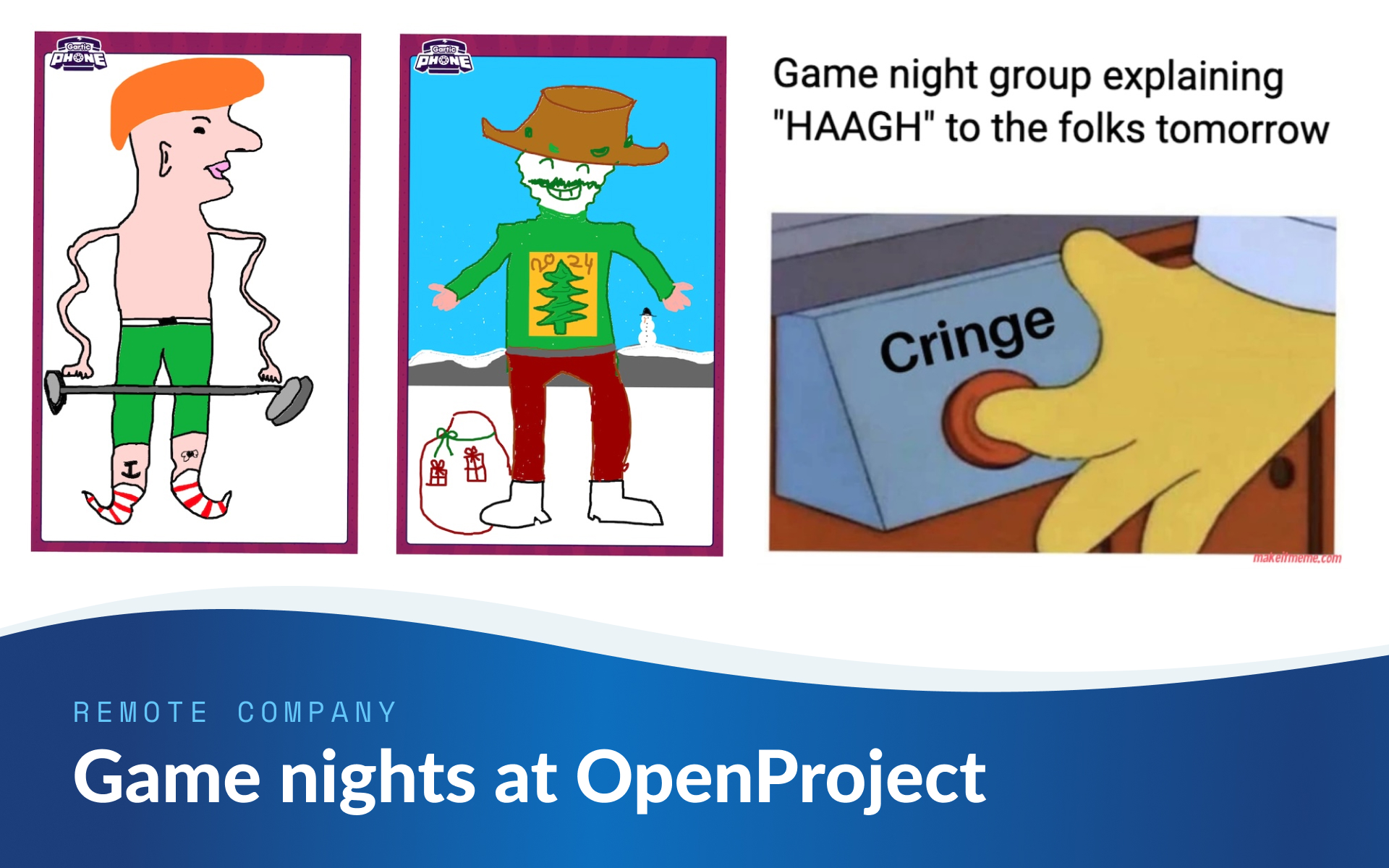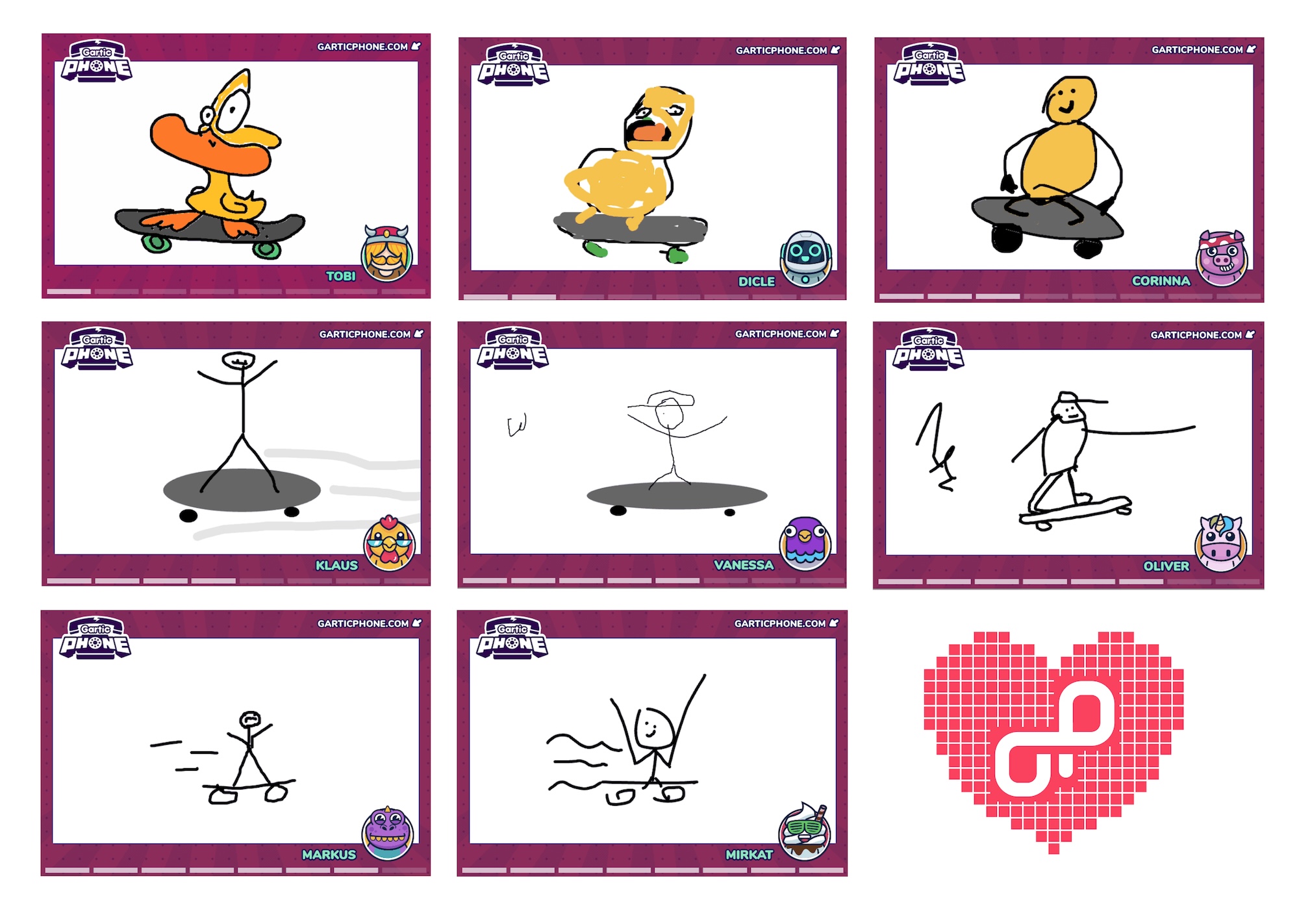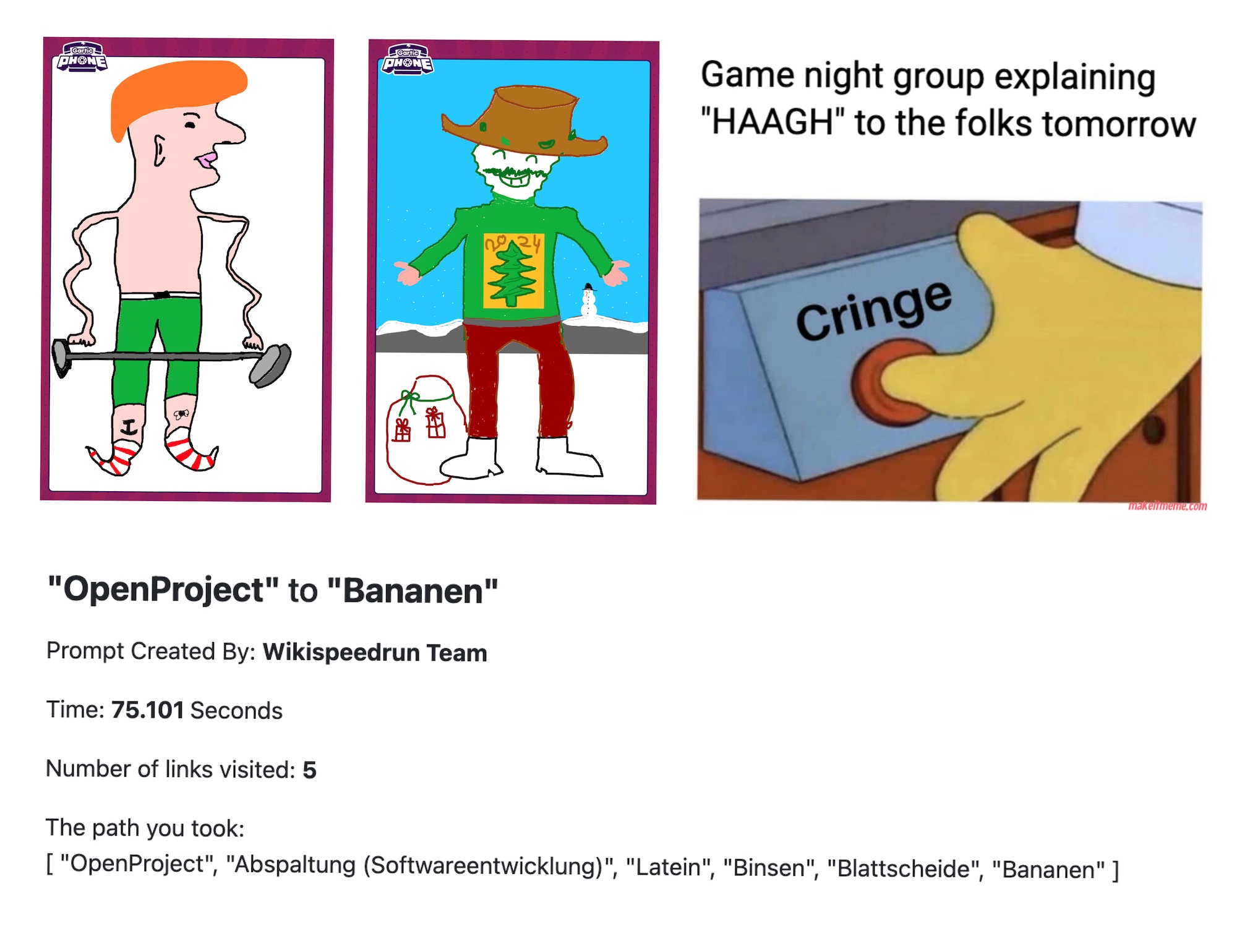
How to keep connected as a remote team: Game nights at OpenProject
Working remotely has many advantages, above all maximum flexibility for employees. However, having colleagues spread across the globe also has the disadvantage that you can’t just meet up for a coffee or after-work get-together.
That’s why we in the OpenProject team – which works 100% remotely – try to make sure that social interaction isn’t neglected. One way to socialize in a relaxed atmosphere is through monthly game nights, which are organized by and for employees outside working hours.
Read this article to get an insight into what these events are like.
Ways to make remote work fun
So, how do you keep connected in a remote team? You don’t have hallway conversations, you don’t have socializing in the office after 5pm, you don’t even have similar summer or Christmas events as in non-remote companies.
At OpenProject, here’s what we do to socialize:
- Virtual Christmas party,
- On-site meetups wherever possible, at least once a year with the whole company,
- Monthly random coffee chats (2-4 people),
- After work game nights.
Together, these activities help keep the team together and bring fun to work. Let’s take a closer look at OpenProject game nights now.
How game nights at OpenProject work
Game nights are internally organized by employees and usually take place once a month, always outside working hours and are, of course, absolutely voluntarily. Even though sometimes new colleagues join, it’s usually the same group of 5-10 people who are participating.
We started the first game night in 2023, and it soon became an unofficial, but regular place to socialize. And over time, game night has also become a space for running jokes and shared humor.
To keep things easy and fun and include everyone who wants to participate, we follow these simple ground rules:
- Browser-based games only,
- Free to play only,
- In the evening, outside working hours,
- Once a month, we start a poll to decide on the next date.
Games we like to play
As mentioned above, we restrict ourselves to browser-based games to have low-entry barriers. Here are some of our all-time favorites:
- skribbl – Each player takes turns drawing a term, which the others guess via text chat (as often as they like). Points are awarded for guessing correctly quickly and for drawing well.
- codenames – Two teams play against each other, with one person from each team having to explain certain terms from a 5x5 grid of cards to their team. But: they are only allowed to say one word and one number (indicating how many cards are meant).
- timeguessr – You see a random picture and have to decide when and where it was taken. We play that by one person sharing their screen and us collectively discussing to find the right solution.
- make it meme – A fun game in which each person chooses a meme (image) and adds text to it. After a few minutes, the outcomes are presented and you can vote for the memes you like best. For us, this is THE game of inside jokes.
- garticphone – There are various creative game variations to choose from. They all involve drawing and a kind of Chinese whispers. For example, everyone draws a picture, then receives the picture of another player and has to write a short description. After that, everyone receives only a text and has to draw a picture to go with it - and so on.
- wikispeedruns – This game plays through Wikipedia: You choose a starting term and an ending term – e.g. from OpenProject to Banana. To get from the Wikipedia page for the starting term to the ending term, you have to click on links in the text. The player who needs the fewest clicks wins.
Some games are cooperative, some are competitive, and most require a little creativity. A mouse is helpful, especially for drawing-based games, but other than that, all you need is a stable internet connection. And, of course, it’s not really about winning or creating the most beautiful doodles — the focus is always on having fun together.
Some visual insights


Remarque
As OpenProject employees speak different native languages, we generally communicate in English. Still, it happens sometimes that all game nights participants are German speaking. This is where we switch language and the reason why one image from the above is in German.
Want to take part? Become a colleague!
These social activities are organized by the team, for the team — and are entirely optional. But they’re a great way to have fun together. If this sounds like the kind of workplace you’d enjoy, take a look at our current vacancies.




